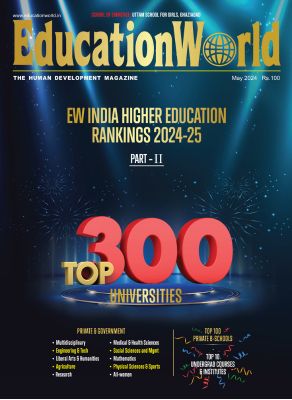The death due to natural causes in Mumbai of Shiv Sena founder-supremo Bal Thackeray (86) brings closure to an inglorious chapter in the political history of India and Bombay — India’s commercial capital — which he perhaps more than any other individual, transformed into Mumbai, the crime capital of India.
Despite all encomiums and veneration including a state funeral covered all-day long on television by sombre news anchors, Thackeray’s politics was always anchored in resentment of the Other as perceptively noted by Praveen Swami in The Hindu (November 20). In various whimsical stages of his political career he was anti-south Indian, anti-north Indian, anti-Muslim and anti-social inasmuch as he instigated one of Mumbai’s deadliest anti-Muslim riots in 1992-93.
Unimpressed by his muscle and/or divisive politics together with the late J. B. D’Souza, your editor filed a writ petition in the Bombay high court against the Maharashtra state government for failing to prosecute Thackeray under ss.153-A and 505 of the IPC for preaching and propagating communal disharmony and instigating murder and mayhem in the country’s commercial capital. Yet so great was the fear of Shiv Sena goons over the city, that a two-judge bench of the court dismissed the petition on the flimsy technical ground that we should have filed a police complaint before filing the writ. And wonder of wonders, that absurd judgement was upheld by the Supreme Court.
Fear of the mob. That’s the legacy of Bal Thackeray.
Iron Lady’s vaulting ambition
Well into the new millennium until ten years ago, the Hongkong and Shanghai Bank India, which in its avatar as the Mercantile Bank (estb. 1853) predates the Hongkong and Shanghai Banking Corporation Ltd, Hongkong, the founding member of the globe-girdling London-based HSBC Holdings Plc (pretax profit US $ 21.9 billion or Rs.121,853 crore in 2011), was the most consumer-friendly foreign bank in India.
HSBC India’s young managers often exercised their discretion to lend a helping hand to struggling entrepreneurs and small-scale businesses. Indeed, but for a timely overdraft sanctioned by Zareer Cama, who a quarter century later was appointed the first Indian chief executive of HSBC India, Business India (estb. 1978), which gave the first clarion call against the neta-babu, licence-permit-quota raj, would have collapsed under the weight of its modest debts.
But after Cama who served as CEO of HSBC India for almost five years was promoted to the position of group general manager of HSBC Holdings London, Naina Lal Kidwai, who had joined HSBC India in 2000, was unexpectedly promoted to the corner office as CEO. Under her dispensation the bank reverted to type. All oleaginous letters by your editor to Lal Kidwai, a social acquaintance (whose son I taught to play squash), requesting a modest working capital loan for this then struggling publication, remained unanswered and an HSBC advertising campaign in EW was abruptly terminated. Instead, under Kidwai the bank aggressively courted high net worth individuals (HNIs) and corporate behemoths.
But recent media and government reports indicate that Lal Kidwai, now chairman of HSBC India, has overreached herself. According to reliable banking industry insiders, in frenzied pursuit of HNI deposits, Lal Kidwai encouraged sales and branch managers to indulge in large-scale hawala transactions, i.e, crediting illegal accounts in HSBC, Geneva for payments made into HSBC branches in India. A disgruntled former employee of HSBC, Geneva leaked a list of secret bank accounts to the French government in July 2011 which reportedly includes the names of 700 Indian politicians and businessmen.
Arvind Kejriwal, the leader of the newly-promoted Aam Admi Party, alleges that HSBC is “heavily involved in money laundering” and has demanded strict action against it for encouraging “kidnapping, corruption and terrorism in the country”. All indications are this iron lady’s rule in HSBC India is set to come to a speedy and ignominious end.
Naipaul’s famous traits
The Tata Live! 3rd Mumbai Literary Festival (October 30-November 4) made headlines not as much for the bon mots and penetrating insights into life, letters and the human condition of its stellar cast of great writers, wannabes and poseurs as it did for Bangalore-based playwright Girish Karnad’s diatribe against Nobel Prize literateur Sir Vidia Naipaul for alleged anti-Islam bias in his books and utterances. But although this act of lese majeste resulted in a volley of recriminations against Karnad popularly dubbed Canard, there was something admirable about the manner in which Karnad — who was scheduled to deliver a sleep-inducing lecture on the adaptation of literature to the stage — seized the opportunity to fire a long-suppressed broadside at the visibly aged leonine Nobel laureate for being “tone deaf” and thus unappreciative of the great contribution of Islam to Indian music and the arts.
The admirable aspect of Karnad’s on-stage coup is that he seized an opportunity in a typical Naipaulian way because the London-based writer is well-known for his proclivity to use people (and situations) to his advantage and to suffer convenient amnesia after his purpose is served. Naipaul’s notorious tight-fistedness, self-centricism and exaggerated sense of entitlement were fully detailed by his former protege and writer Paul Theroux in his 358-page book In Sir Vidia’s Shadow (1998).
Your editor, a lapsed friend of the Nobel laureate, experienced these famous traits of the great writer when at the latter’s request, he showed him around Bangalore at the turn of the century. In particular I remember being landed with a Rs.1,500 dinner bill at a time when your editor was in somewhat impecunious circumstances, while Naipual made feeble attempts to find his wallet. But following Naipaul and Lady Nadira’s subsequent friendship developed with his faithful Sancho Panza, the London-based Farukkh Dhondy, with whom I had crossed swords on several occasions, your editor was struck off his social acquaintances’ list.
Nevertheless, I have no hesitation in acknowledging the Nobel laureate’s extraordinary command of the English language, amazing acuity and remarkable insights. The lesson learned is that great writers are better read than socialised with.


























